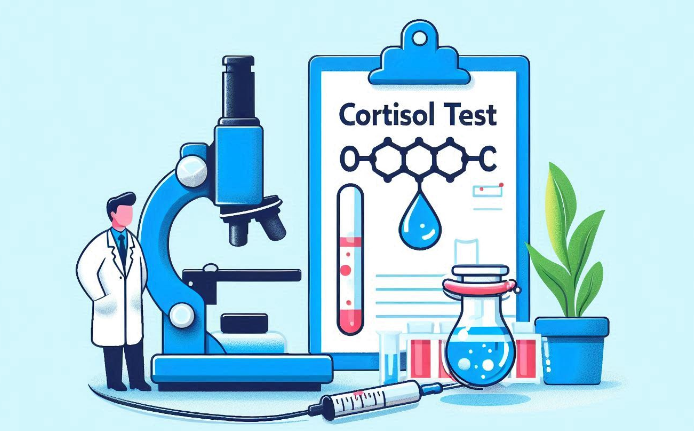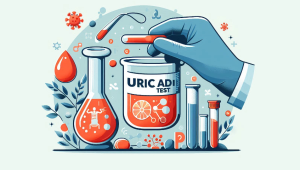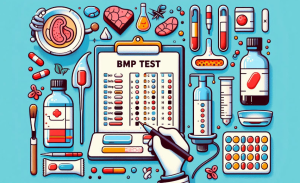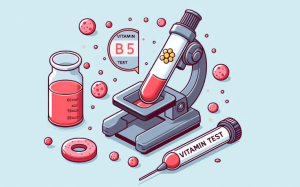What is a Cortisol Test?
A cortisol test measures the level of cortisol, often referred to as the “stress hormone,” in your blood, urine, or saliva. Cortisol, produced by the adrenal glands, plays a vital role in various bodily functions including regulating blood sugar, blood pressure, metabolism, and the immune response. It also helps the body respond to stress.
Why Do You Need a Cortisol Test?
A cortisol test may be recommended to:
- Diagnose conditions related to abnormal cortisol levels: This includes Cushing’s syndrome (excess cortisol) and Addison’s disease (insufficient cortisol).
- Monitor the effectiveness of treatment for these conditions: Cortisol tests are regularly done to ensure that medication or other therapies are successfully managing cortisol levels.
- Investigate symptoms suggestive of adrenal gland dysfunction: These symptoms can include unexplained weight gain, fatigue, muscle weakness, high blood pressure, easy bruising, or changes in mood or menstrual cycles.
What Does a Cortisol Test Measure?
A cortisol test directly measures the concentration of cortisol in the sample collected – blood, urine, or saliva. It can indirectly indicate:
- Adrenal gland function: The amount of cortisol detected reflects the activity of the adrenal glands.
- Potential health risks: Both high and low cortisol levels are associated with various health problems.
- Underlying conditions: Abnormal cortisol levels may suggest Cushing’s syndrome, Addison’s disease, or other conditions affecting the adrenal glands or pituitary gland.
Preparing for the Test
Preparation for a cortisol test depends on the type of sample being collected:
- Blood test:
- Timing: Cortisol levels fluctuate throughout the day, typically highest in the morning and lowest at night. Your healthcare provider will instruct you on the specific timing for your blood draw.
- Fasting: May be required depending on the time of day the test is done.
- Medications: Some medications can interfere with cortisol levels. Inform your doctor about all medications and supplements you are taking.
- Urine test:
- 24-hour collection: You will need to collect all urine produced over a 24-hour period.
- Medications: Certain medications can affect results, so inform your doctor beforehand.
- Saliva test:
- Timing: Usually done late at night to measure the lowest cortisol level.
- Avoid eating, drinking, or brushing teeth for a period before the test.
- Medications: Certain medications, including some steroid creams, can affect results.
Understanding the Results
Normal cortisol levels vary depending on the time of day, the type of sample collected, and the laboratory.
- Blood test:
- Morning: 5-23 mcg/dL
- Afternoon: 3-16 mcg/dL
- Urine test: 10-100 mcg/24 hours
- Saliva test: Evening levels are typically less than 1.8 ng/mL
Abnormal results may indicate:
- High cortisol levels: Cushing’s syndrome, stress, or certain medications.
- Low cortisol levels: Addison’s disease, hypopituitarism, or certain medications.
Your doctor will interpret your results in conjunction with your symptoms, medical history, and other tests to reach a diagnosis.
Risk Factors and Prevention
Risk factors for abnormal cortisol levels include:
- Tumors: on the adrenal or pituitary glands
- Long-term use of corticosteroid medications: such as prednisone
- Chronic stress
Preventing abnormal cortisol levels often involves managing underlying conditions:
- Treating tumors: Surgery, radiation, or medication might be necessary to manage tumors causing abnormal cortisol production.
- Adjusting medication: If medications are contributing to abnormal cortisol levels, your doctor may adjust the dosage or switch medications.
- Stress management: Techniques like exercise, meditation, and relaxation can help reduce stress and its impact on cortisol levels.
Remember, a cortisol test is an important tool for diagnosing and monitoring conditions related to adrenal gland function. If you have any concerns about your cortisol levels or adrenal health, talk to your healthcare provider.

 7351982473
7351982473











